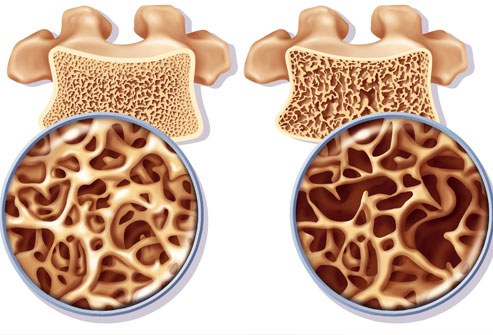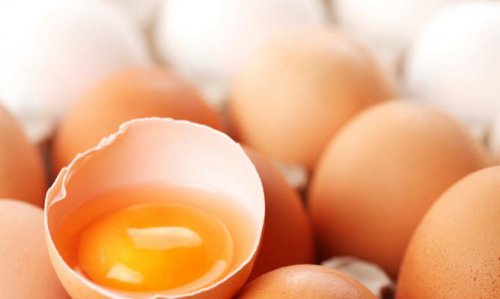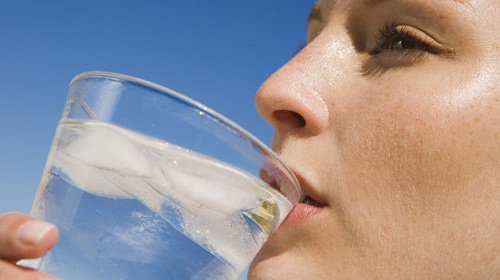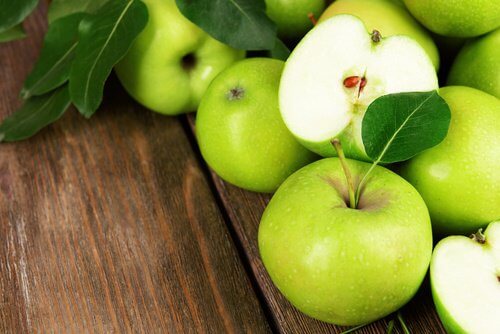Diet for Women Going Through Menopause

Menopause is a critical stage for women in so many ways. The changes that your body and metabolism undergo have varying consequences from person to person. Some symptoms of menopause can affect your personal life, your job, your relationships, and your happiness with yourself. There are an endless number of topics that are discussed on this subject, but how to deal with menopause usually isn’t one of them. Did you know that what you eat through menopause is actually very important? Find out more in today’s article.
Menopause: more than just the end of menstruation
While that is the official definition of this stage in life, the changes go much deeper. During this time, a woman begins to undergo different hormonal, psychological, and physical shifts. All of them have the same root cause: the decline in the production of estrogen, which triggers other effects that can alter your metabolism.
Some of the most common symptoms of menopause are:
- Hot flashes
- Night sweats
- Dry skin
- Depression
- Changes in mood
- Loss of bone density
- Decreased libido
- Insomnia
- Anemia
Nutritional needs while going through menopause
During this time, which can begin as early as 40 in some women, it’s important to think about some critical issues to avoid not getting enough nutrients, including:
Calcium

- Sardines
- Beans
- Almonds
- Chard
- Broccoli
Iron
A deficiency of iron can cause anemia, among other problems. Some foods that provide iron are:
- Lean red meat
- Fish
- Nuts
- Green leafy vegetables
Vitamin D

- Eggs
- Fish oil
- Liver
Fiber
Fiber is an important component of your diet because it helps improve your digestion and protects you from high cholesterol. During menopause, your hormonal changes can increase the risk of fat accumulating in your bloodstream. Foods that are high in fiber include:
- Fruits
- Vegetables
- Beans
- Whole grains
Tips for nutrition during menopause
Now you know what foods you need to include in your diet, but there are some additional tips we want to share with you today:
Choose whole grain cereals
This means unrefined flour, rice, and sugar. That way you’ll be adding more fiber to your diet.
Drink plenty of water

Avoid unhealthy foods
The right foods for menopause are the same as those for someone who wants to lead a healthier lifestyle – at any age. That’s why it’s a good idea to stop eating:
- Butter
- Fatty meats
- Fast foods
- Pastries
- Fried foods
- Sugars
- Desserts
- Sodas
- Candies
- Ice cream
- Salty foods
- Cured meats and sausages
- Canned food
Eat more vegetable-based foods

- Apples
- Sweet potatoes
- Tofu
More tips for menopause
In addition to keeping a healthy diet and incorporating particular foods for menopause, it’s a good idea to:
- Exercise two or three times a week, whether at home, in a park, or at the gym.
- Practice deep relaxation techniques like yoga, meditation, or tai chi.
- Keep stress levels low, whether they’re triggered by work or personal problems.
- Keep the temperature in your home at 70° F, no matter what the season.
- Try to dress in layers to keep from suffering when you have hot flashes or take a sudden chill.
- Walk at least 20 minutes a day. You can walk while you’re shopping, going to work, taking care of the dog, etc.
- Maintain an ideal body weight for your height and level of fitness.
- Don’t smoke or drink too much alcohol (a glass of wine with meals is fine).
- Always try to maintain a positive attitude, remember to smile and enjoy every day.
- Seek therapy if you’re fighting depression or anxiety.
- Keep track of the changes that are happening in your body.
- Talk about your physical and emotional changes with a doctor or psychologist, as well as your family.
- Remember that this is a stage of life that all women go through. It’s normal and natural.
- Don’t stop doing what you love, whether it’s school, work, travel, cooking, etc.
All cited sources were thoroughly reviewed by our team to ensure their quality, reliability, currency, and validity. The bibliography of this article was considered reliable and of academic or scientific accuracy.
- Feskanich D, Willett WC, Colditz GA., “Calcium, vitamin D, milk consumption, and hip fractures: a prospective study among postmenopausal women”, Am J Clin Nutr. 2003 Feb;77(2):504-11.
- Mansikkamäki K, Raitanen J, Malila N, Sarkeala T, Männistö S, Fredman J, Heinävaara S, Luoto R., “Physical activity and menopause-related quality of life – a population-based cross-sectional study”, Maturitas. 2015 Jan;80(1):69-7
- Washburn S1, Burke GL, Morgan T, Anthony M., “Effect of soy protein supplementation on serum lipoproteins, blood pressure, and menopausal symptoms in perimenopausal women”, Menopause. 1999 Spring;6(1):7-13.
This text is provided for informational purposes only and does not replace consultation with a professional. If in doubt, consult your specialist.








